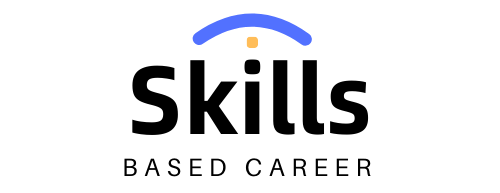Python for Beginners: Python is one of the most versatile and beginner-friendly programming languages, making it a top choice for aspiring developers, data scientists, and automation enthusiasts. Whether you’re transitioning careers, enhancing your skills, or starting fresh, this 90-day roadmap will guide you from Python basics to advanced concepts—all while keeping your learning structured, engaging, and effective.
Master Python for Beginners in 90 Days
- A phased learning plan for mastering Python in 90 days.
- Essential tools and resources to accelerate your progress.
- Practical tips to stay motivated and avoid burnout.
- How to build real-world projects to showcase your skills.
Table of Contents
Why Learn Python?
Before we outline the 90-day plan, let’s address why Python is worth your time:
- Beginner-Friendly Syntax: Python’s readability mimics natural language, reducing the learning curve.
- High Demand: Python developers earn an average of $120,000/year (source: Glassdoor).
- Versatility: It powers web development, data analysis, AI, automation, and more.
- Strong Community Support: Access thousands of tutorials, forums, and libraries.
Setting Up Your Python Development Environment
To start coding, you’ll need the right tools. Here’s a quick setup guide:
Tools & Software
| Tool | Purpose | Download Link |
|---|---|---|
| Python 3.x | Core programming language | python.org |
| VS Code | Code editor with Python extensions | code.visualstudio.com |
| Jupyter Notebook | Interactive coding for data science | jupyter.org |
| Git & GitHub | Version control & collaboration | git-scm.com |
Checklist for Day 1
- Install Python and verify using
python --versionin the terminal. - Set up VS Code with the Python extension.
- Create a GitHub account to save your projects.
The 90-Day Roadmap to Master Python
This plan is divided into three phases, each focusing on specific skills and projects. Stick to the schedule, practice daily, and revisit challenging topics as needed.
Phase 1: Foundations (Days 1–30)
Goal: Grasp Python syntax, data structures, and basic problem-solving.
Week 1: Introduction to Python
- Day 1–3: Variables, data types, and operators.
- Day 4–5: Conditional statements (
if,else,elif). - Day 6–7: Loops (
for,while) and basic functions.
Practice Project: Build a calculator that performs arithmetic operations.
Week 2: Data Structures
- Day 8–10: Lists, tuples, and dictionaries.
- Day 11–12: String manipulation and methods.
- Day 13–14: Sets and comprehensions.
Practice Project: Create a to-do list manager using lists.
Week 3–4: Functions & File Handling
- Day 15–18: Advanced functions (parameters, return values, scope).
- Day 19–21: Reading/writing files (
open(),read(),write()). - Day 22–30: Error handling (
try,except) and modules (math,datetime).
Practice Project: Develop a contact book that saves data to a .txt file.
Phase 2: Intermediate Skills (Days 31–60)
Goal: Explore object-oriented programming (OOP) and external libraries.
Week 5–6: Object-Oriented Programming
- Day 31–35: Classes, objects, and inheritance.
- Day 36–38: Polymorphism and encapsulation.
- Day 39–42: Working with modules like
osandsys.
Practice Project: Design a library management system using OOP principles.
Week 7–8: Working with Libraries
- Day 43–46:
NumPyandPandasfor data manipulation. - Day 47–50:
MatplotliborSeabornfor data visualization. - Day 51–53: Introduction to web scraping with
BeautifulSoup. - Day 54–60: Basics of APIs using
requestslibrary.
Practice Project: Analyze a dataset (e.g., COVID-19 stats) and visualize trends.
Phase 3: Advanced Topics & Projects (Days 61–90)
Goal: Build portfolio-worthy projects and explore specialized domains.
Week 9–10: Web Development Basics
- Day 61–65: Flask/Django fundamentals.
- Day 66–70: Build a RESTful API or simple blog.
Practice Project: Deploy a personal portfolio website using Flask.
Week 11–12: Automation & Specializations
- Day 71–75: Automate tasks with
seleniumorpyautogui. - Day 76–80: Introduction to machine learning with
scikit-learn. - Day 81–85: Explore GUI apps using
Tkinter. - Day 86–90: Final capstone project (e.g., a weather app or chatbot).
Practice Project: Develop an email automation tool or a predictive model.
Tips to Stay Motivated
- Code Daily: Consistency beats intensity. Aim for 1–2 hours daily.
- Join Communities: Engage on Reddit’s r/learnpython or Stack Overflow.
- Track Progress: Use GitHub to log daily code commits.
- Celebrate Milestones: Reward yourself after completing each phase.
Common Challenges & Solutions
| Challenge | Solution |
|---|---|
| Syntax errors | Use VS Code’s debugger or print statements. |
| Lack of project ideas | Clone existing projects on GitHub. |
| Imposter syndrome | Focus on progress, not perfection. |
Final Thoughts
Mastering Python in 90 days is ambitious but achievable with discipline and the right resources. At SkillBasedCareer.com, we recommend supplementing this guide with:
- Interactive Courses: Platforms like Coursera or Codecademy.
- Books: “Automate the Boring Stuff with Python” by Al Sweigart.
- Coding Challenges: Websites like LeetCode or HackerRank.
By Day 90, you’ll have a strong Python foundation, a portfolio of projects, and the confidence to tackle real-world problems.
Start today—your future as a Python developer begins now!
FAQs
Q: Can I learn Python without prior coding experience?
A: Absolutely! Python’s simplicity makes it ideal for beginners.
Q: How much time should I dedicate daily?
A: Aim for 1–2 hours daily, with longer sessions on weekends for projects.
Q: What jobs can I get after mastering Python?
A: Roles include Python developer, data analyst, DevOps engineer, and machine learning engineer.
Found this guide helpful? Share it with your network and explore more career-boosting tutorials at SkillBasedCareer.com.



